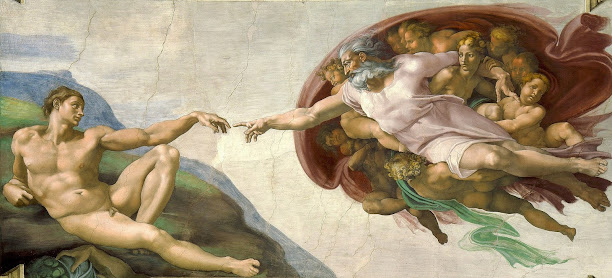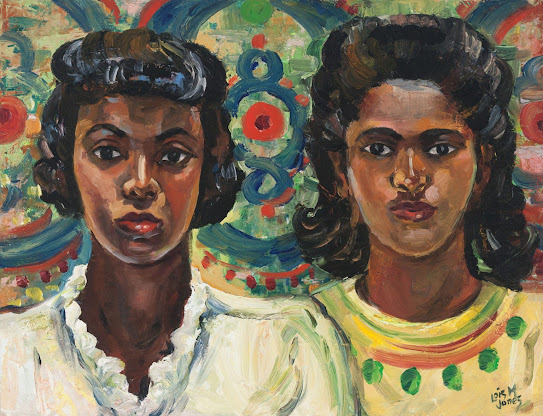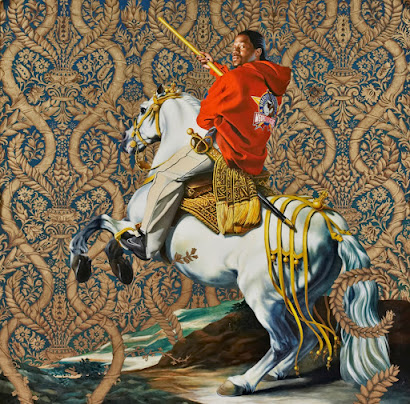Clarissa's Dissatisfaction
It
has become apparent to us as readers that Clarissa Dalloway seems unsure whether
she has made the best decisions in her life. We see this doubt mainly when she
reminisces about her past relationship with Peter Walsh, and when she kisses
Peter upon his return to England. I believe that Clarissa ultimately would be
happier if she had made decisions which led her to a different kind of life. This
is not to say that she would have necessarily been happier with Peter, but
there are many aspects of Clarissa’s personality and life that suggest deep
dissatisfaction.
The
main indicator of Clarissa’s dissatisfaction is her insecurity about her choice
of marriage. She never once thinks about Richard with the same enthusiasm as when
she thinks about Peter or Sally Seton. In fact, Clarissa thinks about him so
little that we hardly know anything about Richard from just Clarissa’s
thoughts. She even explicitly indicates that she has had conscious second
thoughts after she kisses Peter and thinks “If I had married him, this gaiety
would have been mine all day!” Additionally, I think that Clarissa’s nostalgia
for her relationship with Sally is very telling of what she truly wants from a
romantic partnership. Their relationship was “protective” but also exciting.
Clarissa went “cold with excitement” when she was even just in the same house
as Sally, and Sally herself had a big, unorthodox—or as Clarissa puts it “absurd”—personality.
Clarissa’s relationship with Richard—and Richard himself—seems dull, and rather
cold.
Clarissa’s
insecurity about her life as the wife of a politician also indicates that she would
be happier if she had chosen a different path. I think that Clarissa thinks so much
about how Peter would disapprove of her life as an elite because she secretly
agrees with him. Peter calling her a “perfect hostess” hurts her so much
because she does not want to be just a hostess, but she fears that just a hostess is what she has become as Richard's wife. This is reflected when Clarissa
has the sense of "being herself invisible; unseen; unknown; there being
no more marrying, no more having of children now, but only this astonishing and
rather solemn progress with the rest of them, up Bond Street, this being Mrs.
Dalloway; not even Clarissa any more; this being Mrs. Richard Dalloway”.
Clarissa wants more than to be just known as Richard Dalloway’s wife, but as his
wife it has become her role to organize social events for him and help to
uphold his status.




I agree with you that Clarissa is dissatisfied. However, I don't necessarily think she would be happier on another path. Perhaps she considered that life would have probably been more interesting with Peter Walsh. However, for a woman in the 20th century, marriage was mainly an economic decision. Although Clarissa's marriage seems far from exciting, she has an economically stable life.
ReplyDeleteIt is strange, the book has explicitly said that Clarissa enjoys life and yet constantly casts doubt on her past decisions. I think that she lives a comfortable life that she likes but she thinks about what could possibly be different. I don't think she would be better off than she is now no matter who she had picked. She did not end up in a bad situation which she knows and all and she is dwelling on things that won't change which she also knows. I do believe that she is happy but I would agree that maybe not satisfied which is a weird distinction to make but I think that lines up in the text.
ReplyDeleteI agree with you that Clarissa is unsatisfied with her current life. Even if Peter wouldn't have been good for her, she constantly thinks about him and Sally and these nagging doubts come up much too often to be merely coincidental. I think she's kind of associating all her wishes for a different relationship with Sally and Peter because they are the two people she had a romantic connection with before her marriage limited her options. Maybe she doesn't want those specific individuals, but she wants the change they'd represent because she is too high-status and respectable to seek fulfillment with an affair. Thinking about the past is a relatively guilt-free way to do this.
ReplyDeleteI think you're exactly right about why Peter's comments bother her so much - that they reflect all of her own most deep-seated insecurities, and she constantly fears that she's become exactly what Peter expected. I think speculating about whether Clarissa would have been happier with Peter is quite difficult, as she was clearly frusterated by him much of the time, yet fascinated by him just as often, not able to stop thinking about him. I think it's interesting to thing about how Peter may have begun treating her differently had they married, or at least had she clearly shown interest in him (more directly, not through letters or accounts from Sally). It seems to me that, while some of his criticism of her came from just being the way he talked to people and trusting their connection enough to think she wouldn't get angry, much of it could have also stemmed from his confusion about his own feelings and incapability of accepting that there was unrequited love, that led to lashing out against her to make him feel better.
ReplyDeleteI feel that she is dissatisfied, although as others have pointed out it could be a lot worse. Her main issue seems to be a lack of love. She cites her only instance of love as what she had with Sally Seton. Which implies not only that she doesn't love her husband, but also her daughter or anyone else. Is this Clarissa's doing or the fault of a repressive society. Im not certain.
ReplyDelete